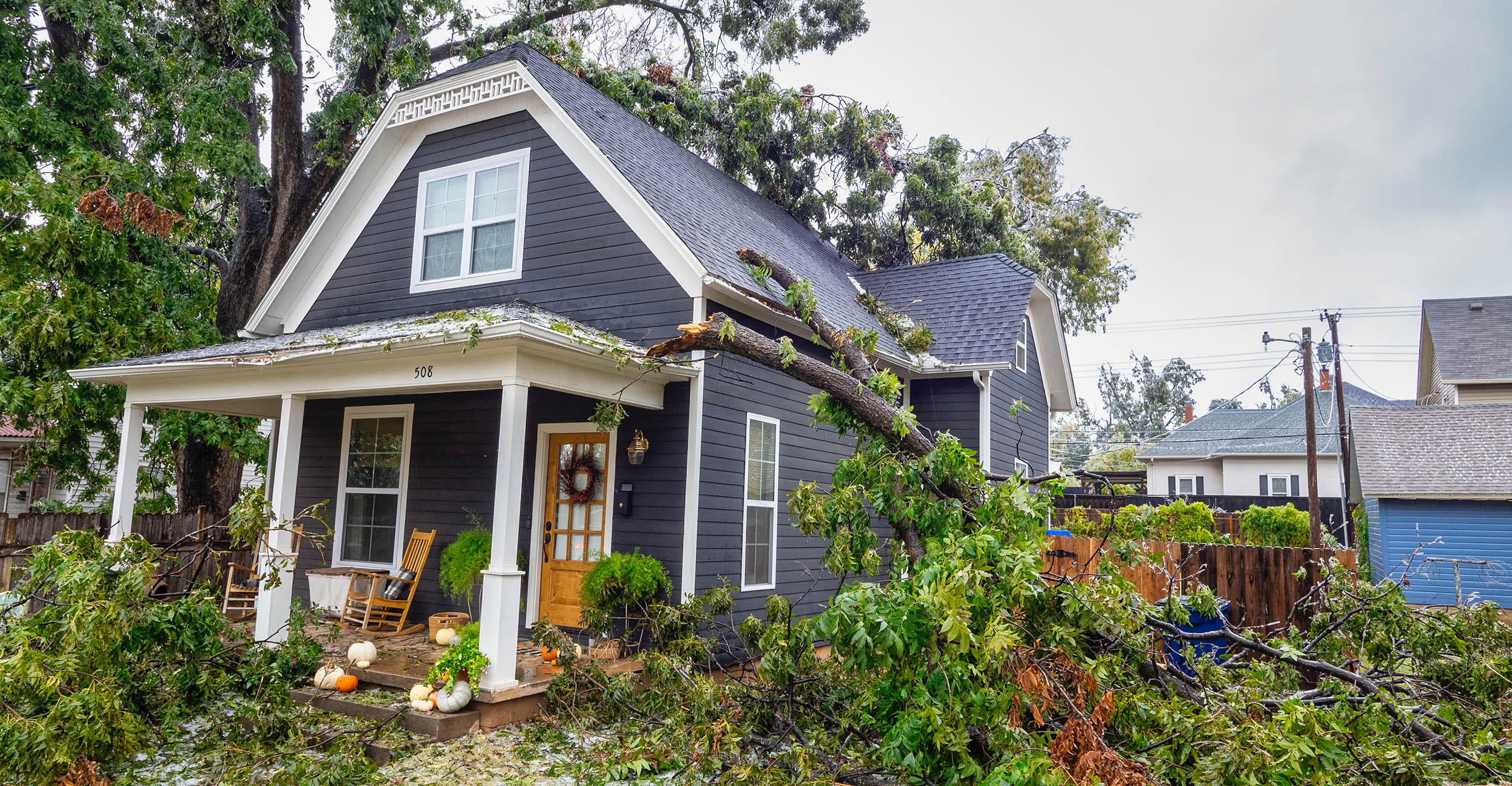
Know the basics of assessing structural damage after extreme weather
Thursday, April 29, 2021
Media Contact: Donald Stotts | Agricultural Communications Services | 405-744-4079 | donald.stotts@okstate.edu
Back-to-back extreme weather events that hit much of Oklahoma – excessive rainfall that led to flooding on April 27 and severe thunderstorms with up to baseball-size hail and high winds on April 28 – underscore the need for affected homeowners to properly assess structural damage on their property.
“Some damage is obvious, but the less-noticeable damage can cause problems just the same,” said Gina Peek, interim associate dean and Oklahoma State University Extension housing and consumer specialist. “Regardless of whether there is visible damage to the property, arranging for inspection by a licensed professional also is recommended.”
The first rule is to wait until authorities give the all-clear. After that, homeowners can safely and thoroughly check the entire house, including the roof, foundation and walls. Document the condition of the property with photos or video and report any damage to the insurance company.
Peek offered up the following practical tips:
- Be on the lookout for sagging ceilings, pooled water and wet insulation. Insulation that gets wet and stays wet must be replaced; sealed inside a building, wet walls typically don’t dry out completely.
- Examine a roof closely for missing or damaged shingles, loose nails or potential leaks, and inspect the roof-truss system because any damage in the truss could affect its strength.
- Check areas where the foundation and the structure meet to ensure no shifting has occurred. Other signs of shifting include doors and windows that no longer open and close correctly.
“Be aware that water lines, gas lines and electrical circuits also may have been disturbed if the shifting is significant enough,” she said. “These are good reasons why a licensed professional should be employed, especially for homeowners who don’t have the applicable knowledge and skill sets.”
Even when everything has been checked out, there’s one more step before repairs can begin: Confirm whether the planned repairs require building permits. Oklahoma doesn’t require a license for general contractors. However, electrical, plumbing, mechanical, sign, driveway and fire suppression system permits can only be issued to contractors licensed by the state and typically registered within a community where they operate.
Additional information on this topic and many other weather-related recommendations from OSU Extension are available online and through OSU Extension county offices.
